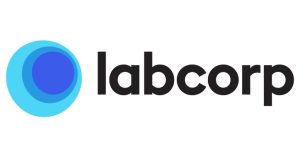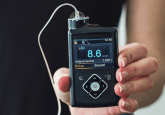Manual to electronic drug application submissions: an interview with Xiaoge Chen

In this interview, we explore how the changes from manual to electronic workbooks are being integrated in China and how this may reveal positive results for future digital implementation across the field.

Xiaoge Chen
Labcorp Bioanalytical Services’ site operations leader
Labcorp Drug Development, (Shanghai, China)
Xiaoge Chen joined Labcorp Drug Development in 2011 and has more than 15 years of GLP experience in the clinical research industry. She currently works as Labcorp Bioanalytical Services’ site operations leader at the Shanghai site in China.
Chen received her Bachelor of Science in Pharmacy from Bengbu Medical University (Bengbu, China) in 2007.
-
What was the driving force behind changing from manual to electronic workbooks for Labcorp Bioanalytical Services in China?
As regulations are becoming increasingly rigorous, we needed to ensure that our bioanalytical sample analysis records could better comply with these enhanced standards to help our clients pass their National Medical Products Administration (NMPA) audits here in China.
-
What were the challenges you faced in implementing the change from a manual workflow to an electronic one?
There were many challenges in implementing the change from a manual to an electronic workflow. These challenges included system implementation errors, fluctuation in network stability and change management with our scientific staff to ensure maximum operational flexibility, a functional system and acceptance and understanding of all impacted staff regarding the new ways of working.
-
What benefits will clients see as a result of the electronic workbook changes?
We anticipate clients will see increased compliance of their studies with the increasingly strict regulations, as well as improved ease of passing their audits. Further, for clients who have environmental stability improvement initiatives, the digitization of this once highly manual process will help reduce waste.
-
What impact do you think the electronic workflow change will have as we continue to see COVID-related challenges around the world?
Given the electronic nature of the system, the digital workflow has been very helpful during the COVID-19 lockdown as the data could easily be reviewed by scientific team members remotely versus the traditional way of having to review live at the site. This enabled us to reduce the impact of the lockdown on the overall study timeline and we anticipate this advantage to continue should we see more lockdowns in the future.
-
How do you see this portion of the workflow transforming for bioanalytical services in the future?
As we continue to seek ways to drive efficiencies and improved turnaround times for our clients, the digitization of once manual workflows throughout bioanalysis will be critical here in the Asia Pacific and around the world.
This interview is a part of our In the Zone feature with Labcorp on the transition to electronic workbooks in China. For more expert opinions on this topic, visit our feature homepage
In association with:







